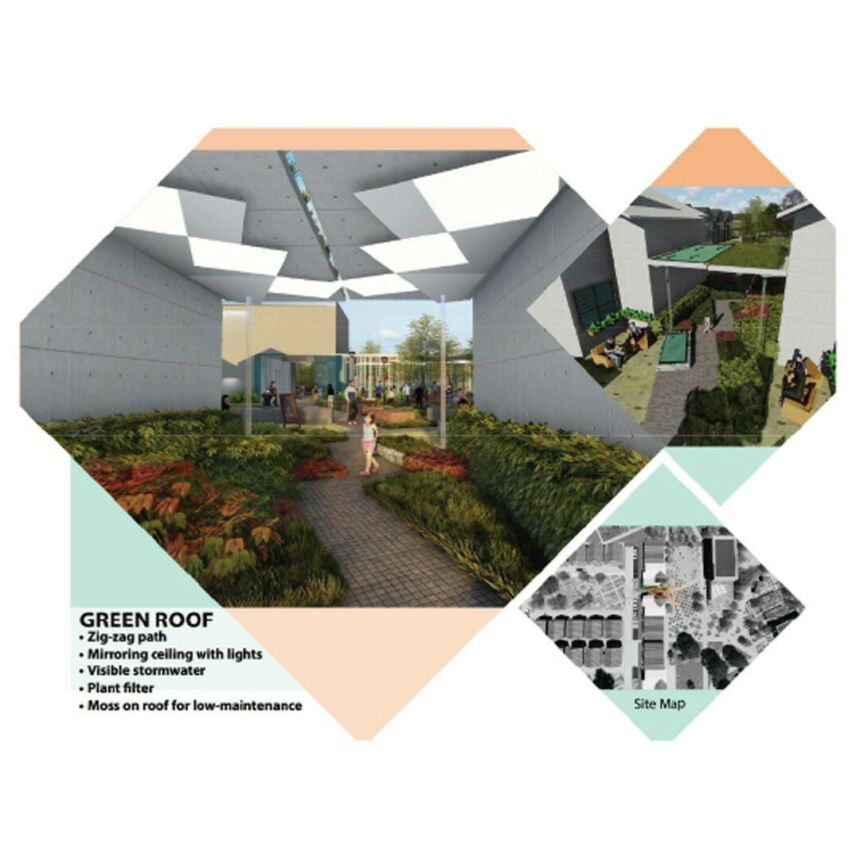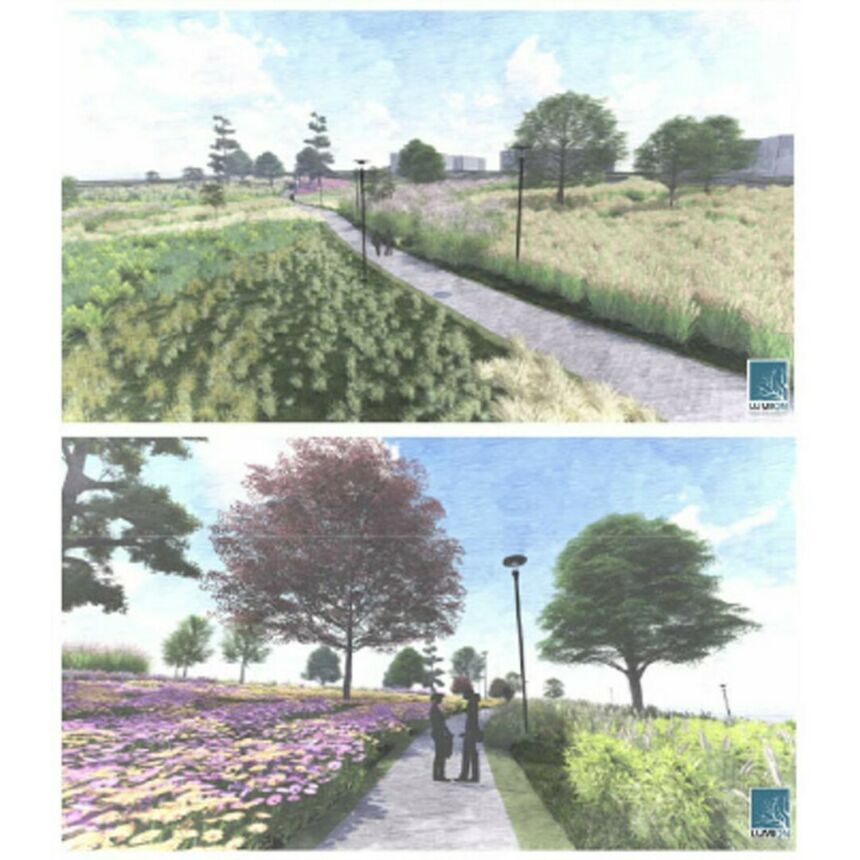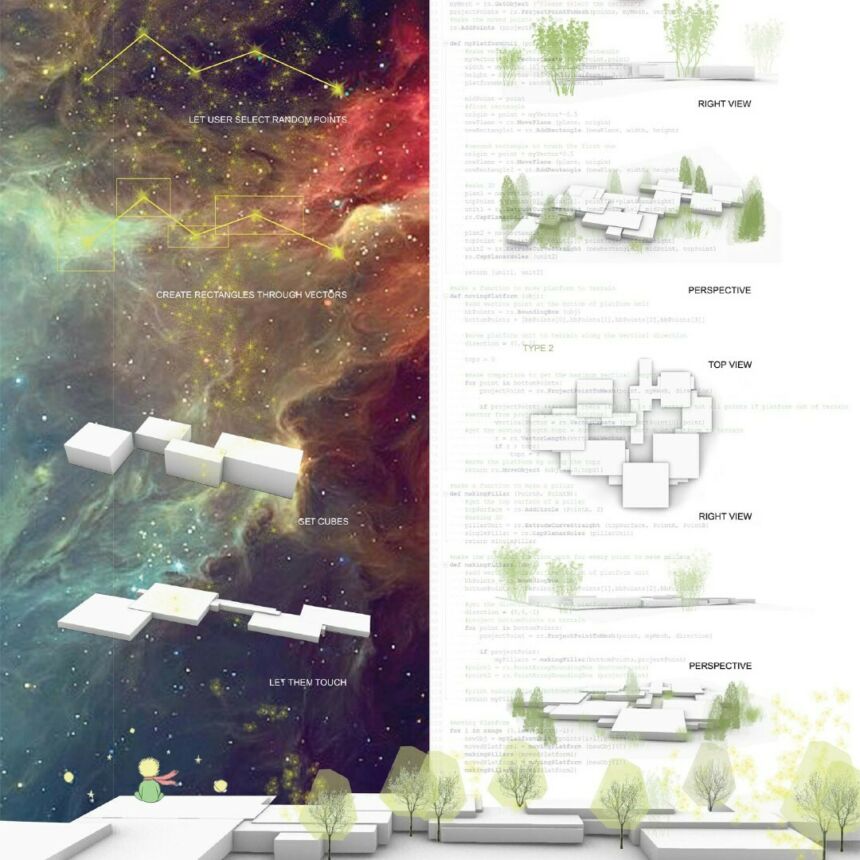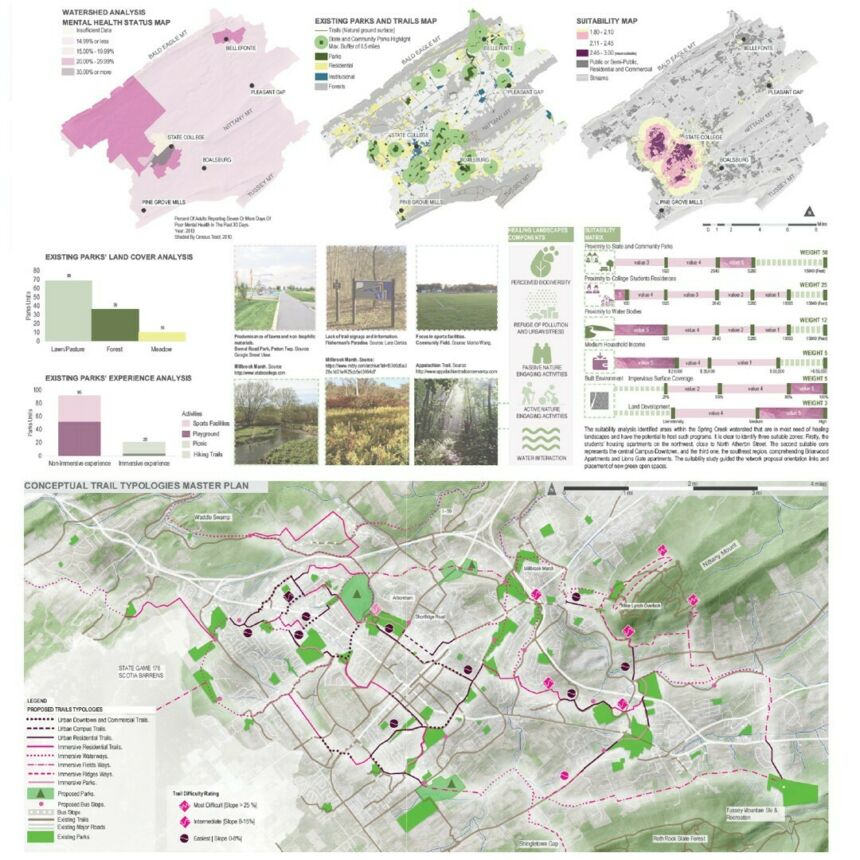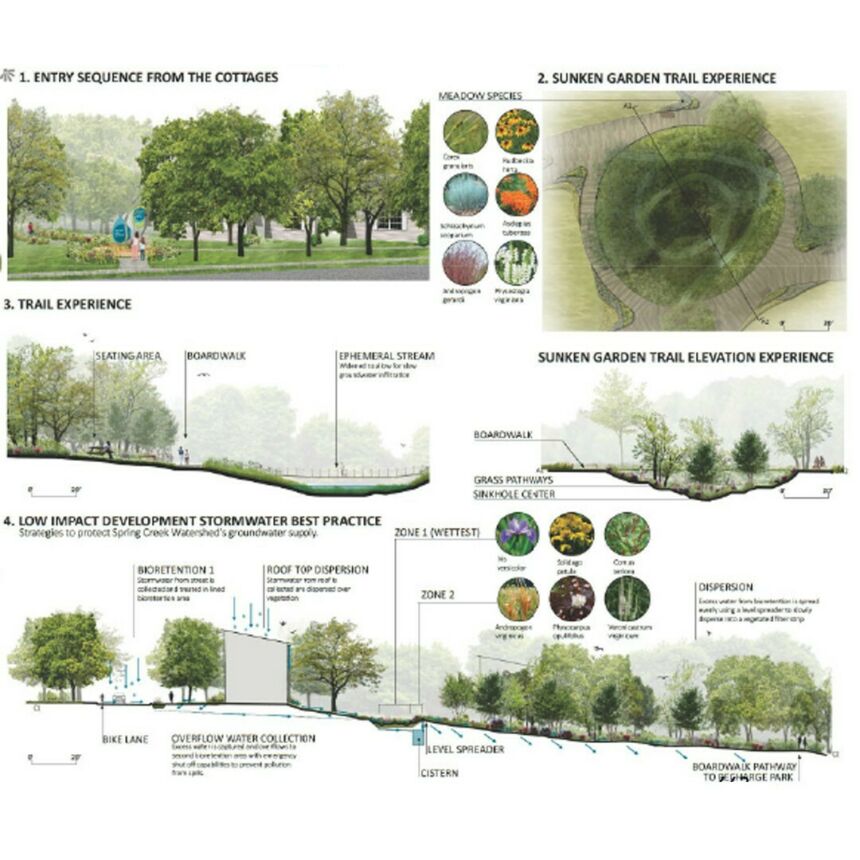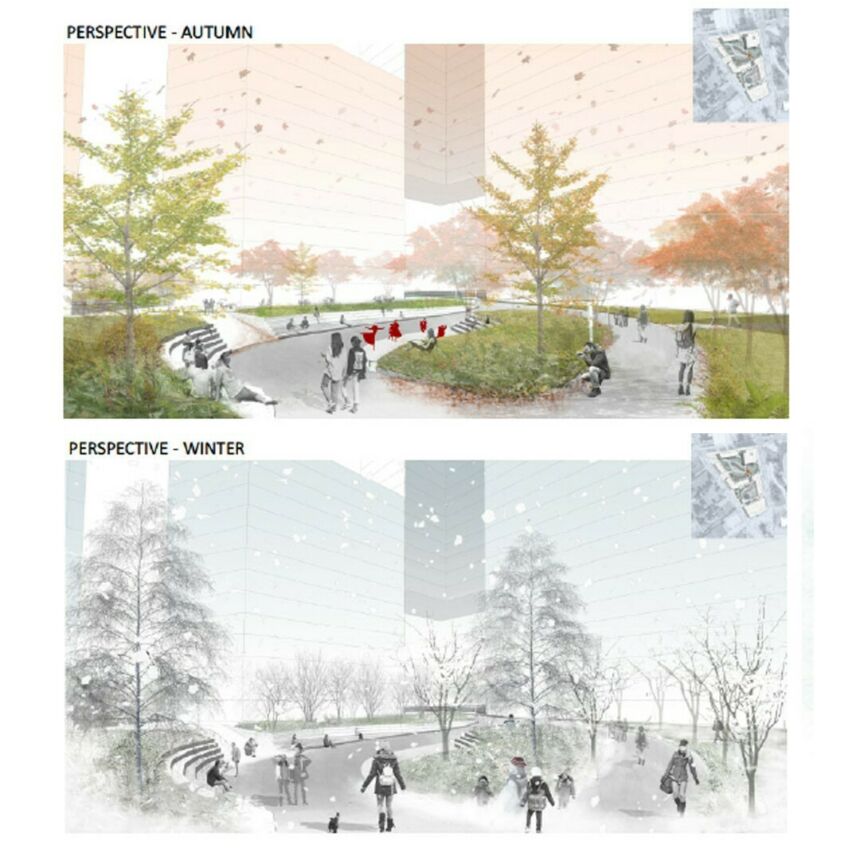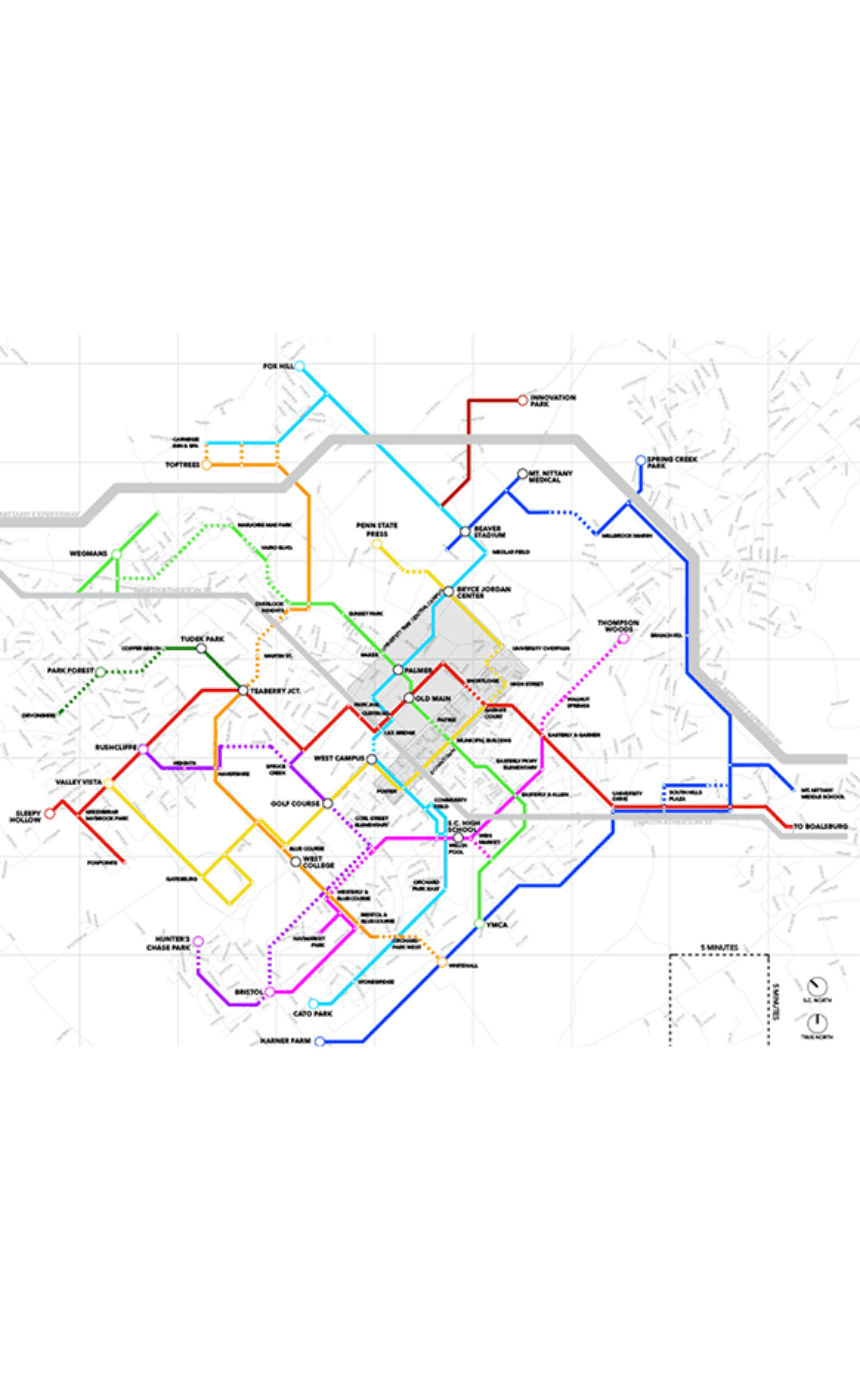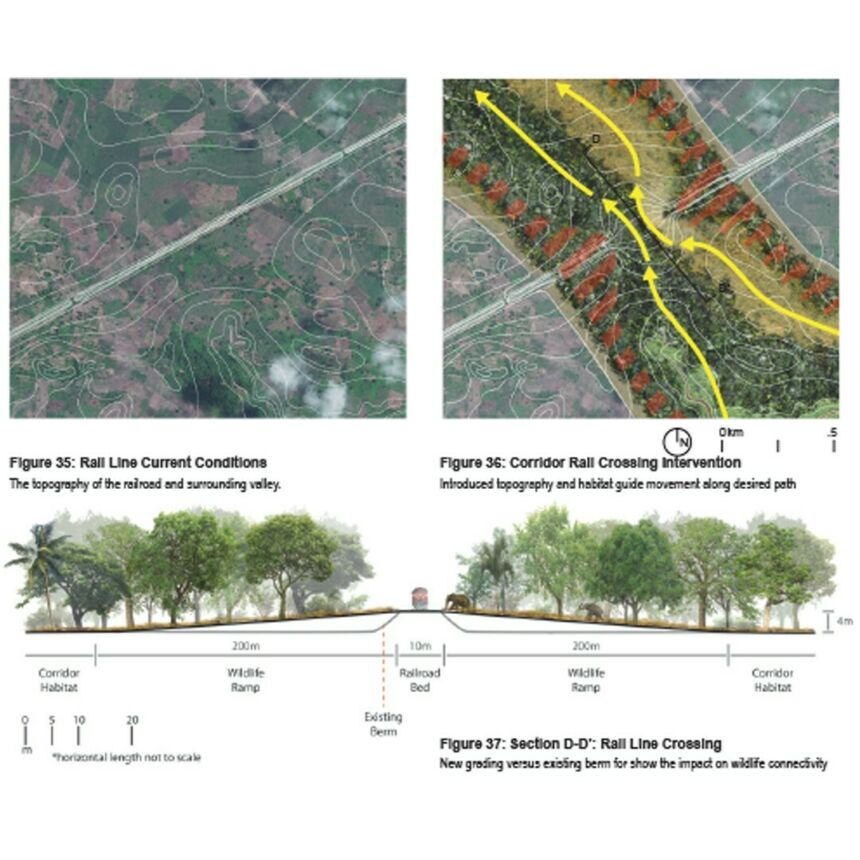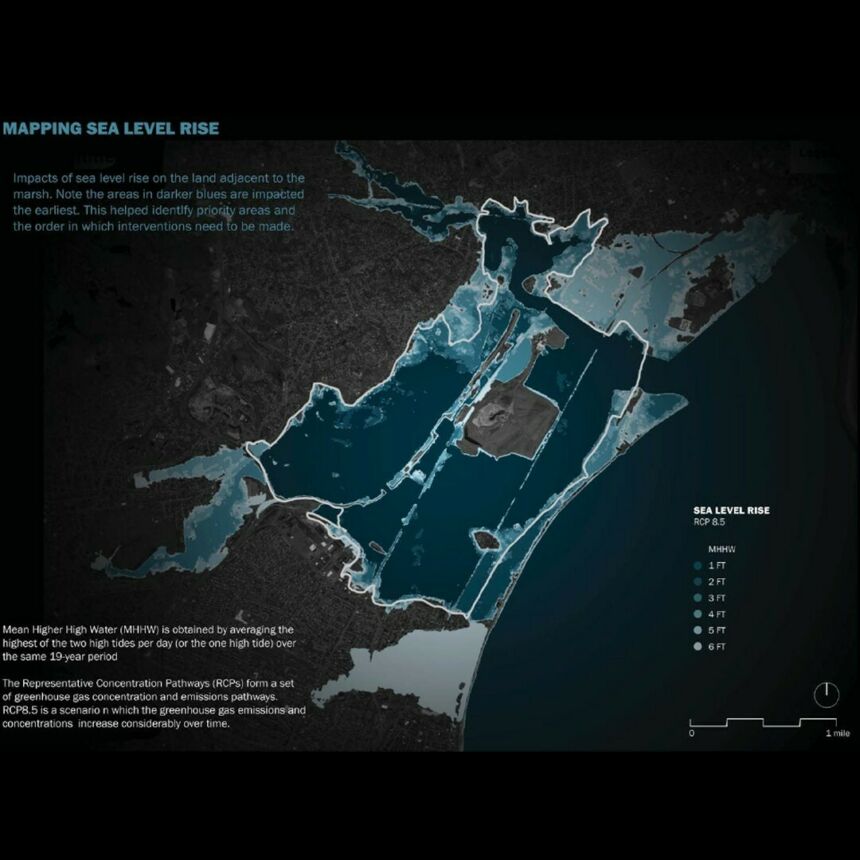
Landscape Architecture, M.L.A.
M.L.A. in Landscape Architecture
Nationally recognized professional education.
The professional M.L.A. program at Penn State equips students with the techniques, principles, histories, theories, and technologies to become leaders in the profession of landscape architecture.
Program Application Deadline
Annual application deadline is January 15.
To be assured full consideration, please review all details on program and admission requirements, and ensure that you apply by this deadline.
Earn a Master of Landscape Architecture at Penn State
Our mission is to do inspired work grounded in environmental and social good. Are you ready to join us?
The M.L.A. at Penn State provides real professional skills that prepare our graduates for real professional practice from the first day. The combination of a professional education from one of the top programs in the country with experience in research at a Tier-1 research institution means that you will be ready to hit the ground running upon graduation. This dual curriculum approach provides a strong foundation whatever your career aspirations: traditional professional practice, conducting research in a professional office, or teaching at a college of university.
Our M.L.A. degree is accredited by the Landscape Architecture Accreditation Board (LAAB) and graduates are eligible to sit for the professional license exam (Landscape Architecture Registration Exam).
Next Steps
Is the M.L.A. right for you?
Our competitive, rewarding, and highly ranked program is designed for students seeking professional training in landscape architecture.
The M.L.A. is open to a diverse array of starting points, including:
- Change-of-career students, new to design, who seek an accredited, professional education that prepares them to enter the practice of landscape architecture; for these students, time to degree is typically three years.
- Students who already hold a non-accredited design degree and seek an accredited, professional education that prepares them to enter the field of landscape architecture; for these students, time to degree is typically two and one-half years.
- Students who already hold an accredited bachelor’s degree in landscape architecture and seek advanced breadth/depth of expertise; for these students, time to degree is typically two years.
Within our inspiring, LEED Gold-rated building, students have access to a specialized Architecture and Landscape Architecture Library, 24-hour access to our own cutting-edge computer studios, as well as a permanent studio desk for each student. All of this plus the additional benefits of attending a Tier 1 research institution.
Many U.S. states and territories require professional licensure/certification to be employed. If you plan to pursue employment in a licensed profession after completing this program, please visit the Professional Licensure/Certification Disclosures by State interactive map.
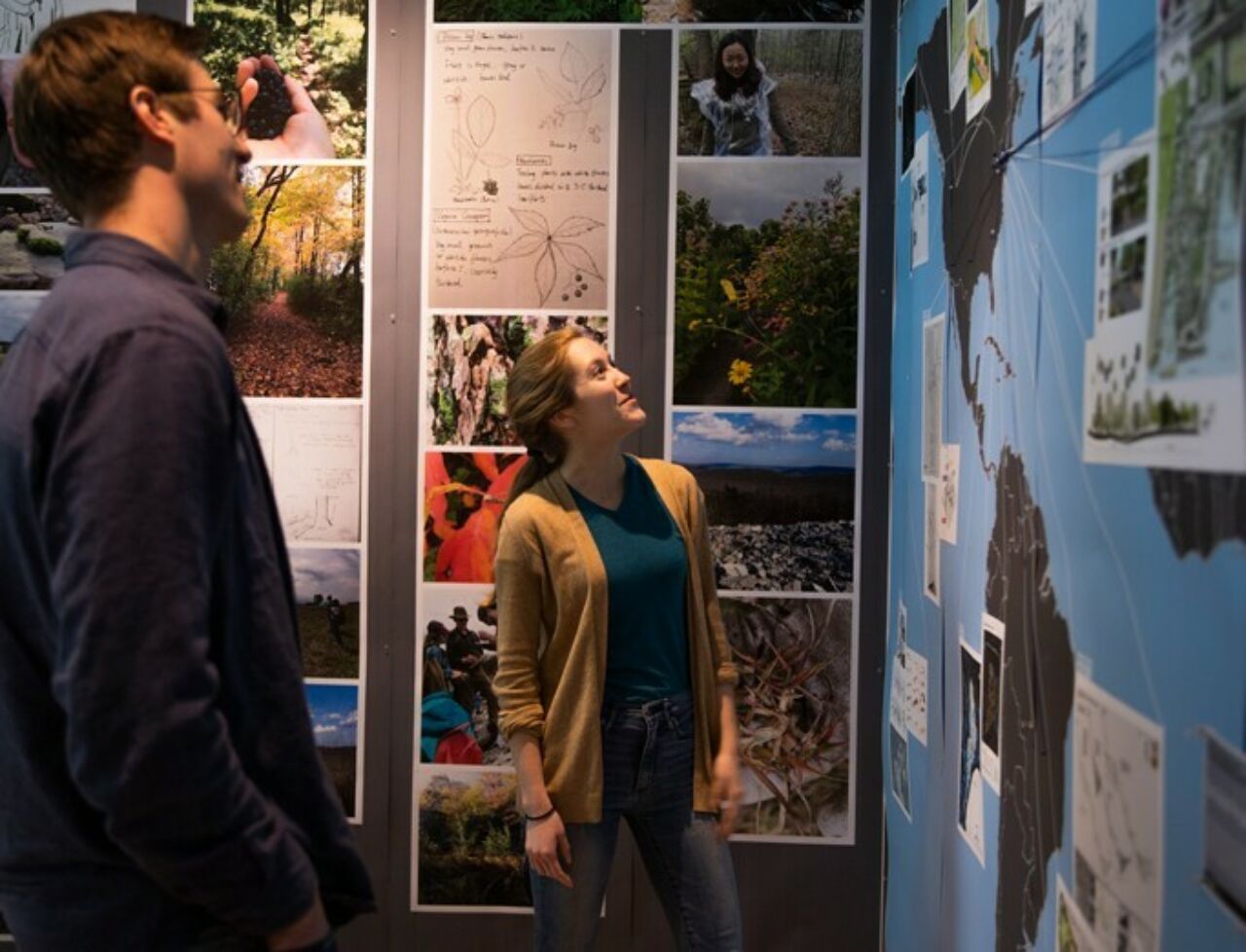
M.L.A. Students
Students currently enrolled in the M.L.A. program.
Guides and Resources

- Our M.L.A. develops creative insight and the knowledge, skills, and abilities needed in practice.
- You can customize your curriculum with geodesign, education abroad, and other opportunities.
- Our faculty members are truly student-focused; you’ll get to know them well as mentors and colleagues.
- Our collegial learning community fosters essential critical inquiry and confidence in our students.
- Our close-knit community of 200 within a large university provides intimate yet vast opportunities.
Level Up
Enhance your education by getting involved.
Research Centers and Initiatives
- Stuckeman Center for Design Computing
A collaborative research and teaching studio-lab focused on developing and testing innovative computational design techniques. - Hamer Center for Community Design
The Hamer Center explores three key topical areas: design/build, community-based research, and public interest design. - E plus D (Ecology + Design)
A collaborative of designers and ecologists who undertake research activated design intervention that improves the ecological health of the designed world.
Assistantships and Fellowship Opportunities
- Teaching Assistantships
Awarded as available on a competitive, semester-by-semester basis. - Research Assistantships
RAs are frequently available from our research centers or individual faculty on a competitive basis, as are grants-in-aid and graduate fellowships. - Fellowships
Fellowship opportunities exist both within Penn State and through external funding agencies.
Student Organizations
- Landscape Architecture Student Society (LASS)
Focused on advancing the future of design within the community and the profession. - National Organization of Minority Architecture Students (NOMAS)
Student branch of the National Organization of Minority Architects. - Graduate and Professional Student Association (GPSA)
Officially recognized by the University as the collective voice of the graduate and professional student body.
